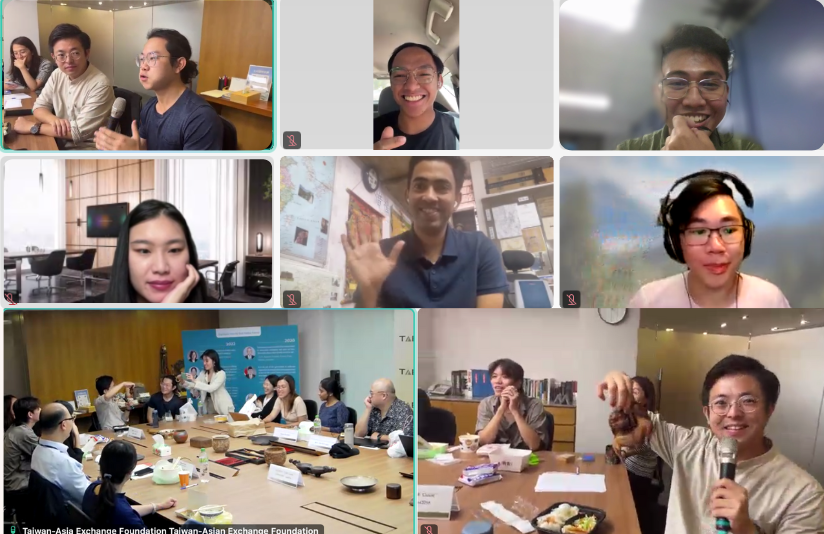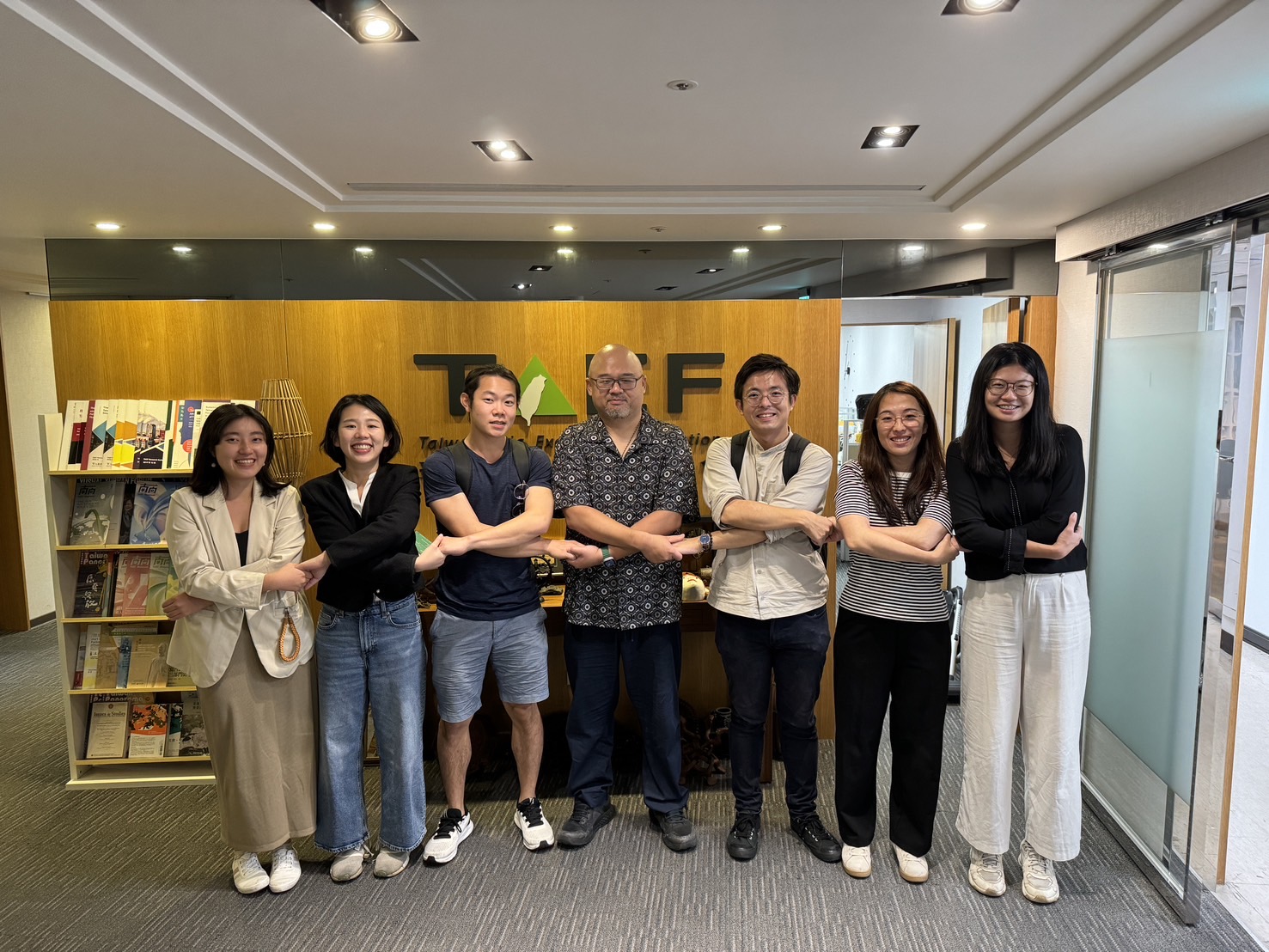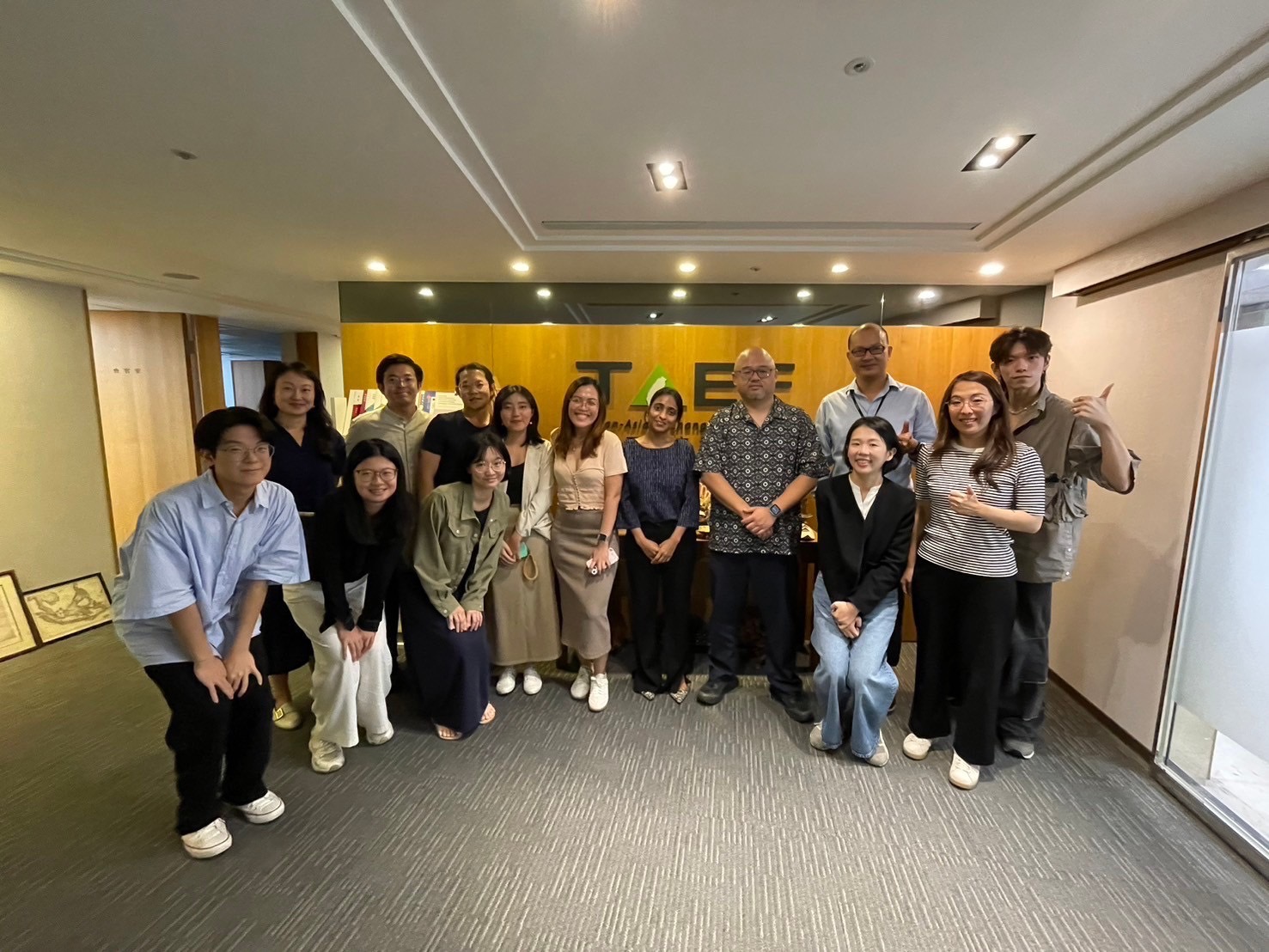On October 16, 2024, the Taiwan-Asia Exchange Foundation (TAEF) celebrated World Food Day with its SEASAT Alumni and the TAEF team, bringing together vibrant attendees from across the globe to share the unique flavors of their home countries. The event featured special guests, including TAEF Executive Director Dr. Alan Hao Yang, Postdoctoral Fellow Sana Hashmi, MOFA Fellow Researcher Giang Nguyen. Youth currently working on NSP-related projects were also invited to the event, including MOFA 2024 Young New Southbound Policy Agricultural Ambassadors I-Chun Huang, and Visiting Scholar from Kyoto University at the Academia Sinica, Center for Asia Pacific Area Studies Gen Shibayama.
World Food Day, organized annually by the Food and Agriculture Organization of the United Nations, promotes the values of diversity, nutrition, affordability, and food safety. TAEF strongly aligns with these values and believes in the importance of governments, businesses, and social organizations collaborating to enhance food security, agriculture, and sustainability across Asia. This year, the event highlighted the growing interest in food security among young leaders. Many have been leading innovative projects in their communities, advocating for collective awareness and sustainable action across various countries. TAEF is thrilled to continue supporting these efforts by fostering conversations about food culture, sustainability, and youth-led projects.
The event kicked off with a vibrant showcase of diverse food cultures as attendees shared traditional dishes from their home countries. Participants who had researched the Indonesian community in Taiwan introduced nasi burung dara (turtledove rice/斑鳩飯), while those from the Philippines presented a local rice dish with shrimp and the popular adobo. Malaysian representatives featured Char Kuey Teow (stir-fried rice noodles/炒粿條), Vietnamese alumni brought pho, and the attendees from India delighted the audience with Indian thali, chana badam, and local coffee. Taiwan’s representatives also proudly highlighted beloved local dishes, including dumplings (鍋貼), Taiwanese pork ball (貢丸) soup, popcorn chicken (香酥鷄), gua bao (刈包), soybean milk (豆花), and grass jelly (仙草). Beyond the food, participants shared personal stories and the cultural significance behind their favorite dishes, making the exchange truly memorable and meaningful.
After the food introductions, the event transitioned into an engaging discussion on agricultural challenges and opportunities in New Southbound Policy (NSP) countries. Key topics included strategies to reduce food waste, promote sustainable agriculture, and empower youth as leaders of change. Attendees shared insights on youth-driven agricultural practices across the Asia-Pacific region, with one participant highlighting the impacts of wage disparities, resource access, and natural disasters on food security. The dialogue aimed to inspire greater collaboration and innovation in tackling food security issues across Asia.
A highlight video of the event will be available next week for alumni who couldn’t join us. Stay tuned for more exciting events in the coming months!



About SEASAT alumni network
The TAEF SEASAT Alumni Network brings together the delegates of all its young leaders engagement initiatives since 2018 to maximize opportunities for youth. They include the Yushan Forum young leaders delegation, the SEASAT Youth Camp participants, the Future of Work for Asian Youth contributors, and delegates of the Youth Dialogue and Asian Dialogue.
Looking ahead, TAEF plans to continue and expand its youth engagement through the launch of the “NSP+ Youth Corridor”. The NSP+ Youth Corridor will empower youth to take on leadership roles in shaping the future of Asia through cross-border exchanges, policy discussions, and advocacy efforts starting with its SEASAT Alumni. By fostering greater integration of young voices into discussions on regional development, this corridor underscores TAEF’s commitment to a youth-driven approach within the broader framework of its NSP+ strategy.
To learn more: https://www.taef.org/40
